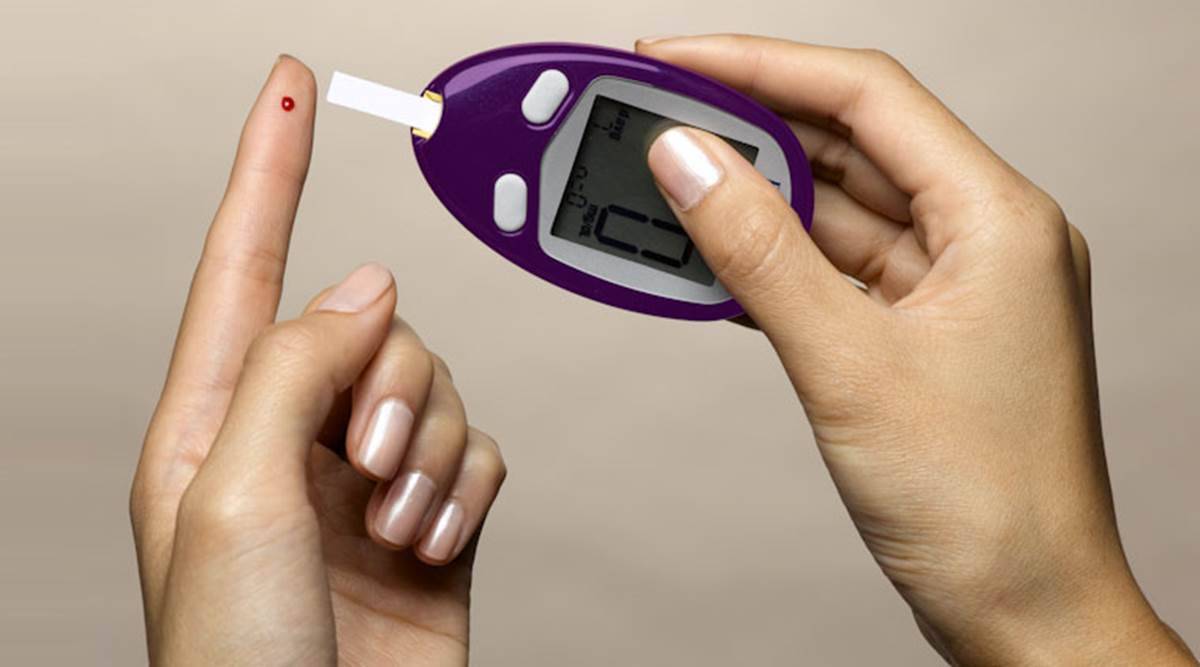July 1, 2022 2:48:03 pm
 Diabetes isn’t always related to how you look. If you are lean but have insulin resistance, your blood sugar can increase, says Dr Ambrish Mithal. (File)
Diabetes isn’t always related to how you look. If you are lean but have insulin resistance, your blood sugar can increase, says Dr Ambrish Mithal. (File)Written by Dr Ambrish Mithal
People often assume that if they are not overweight they are not at risk of developing diabetes. That’s largely because of the prevalence of Type 2 diabetes, which is directly related to body weight. As our weight goes up, our risk of developing Type 2 diabetes also increases.
However, diabetes isn’t always related to how you look. If you are lean but have insulin resistance, your blood sugar can increase. Some may feel that if their BMI (Body Mass Index) is under 25, they’re healthy. But the weighing scale can give a false sense of security. Individuals with normal body weight but with increased proportion of body fat and low muscle mass often have insulin resistance. They are equally at risk of developing Type 2 diabetes.
An important trigger is physical inactivity. Many individuals spend all day in front of the computer or television and get only minimal, if any, leisure exercise. Low physical activity results in a low muscle mass (also called sarcopenia) and insulin resistance even in a lean individual. Such lean individuals, who have a low muscle mass and a high proportion of body fat, experience the same metabolic effects as those who are obese (“metabolic obesity”). At times, muscle mass matters more than the waist circumference. So, measuring a waist to hip ratio is important. Those with visceral fat and high cholesterol, too, are prone. In case there is a family history of diabetes, this risk increases exponentially.
Best of Express Premium
Such patients are usually managed by oral anti-diabetic drugs initially but may require insulin earlier in the course of their disease than a typical overweight or obese patient of Type 2 diabetes.
These adults may also get other types of diabetes. Type 1 diabetes, which is characterised by severe insulin deficiency, was traditionally thought to occur predominantly in children. This type of diabetes is also called insulin-dependent diabetes with patients requiring insulin for treatment from the time they are diagnosed. This happens because of an autoimmune reaction within their bodies where they develop antibodies against their pancreatic cells.
Such patients manifest weight loss, increased urination and thirst and other classical symptoms of diabetes. At times, this type of diabetes evolves slowly and masquerades as Type 2 diabetes in the early stages. This slowly evolving form of Type 1 diabetes in adults is called LADA (latent autoimmune diabetes of adults). Many such patients are lean or underweight. Clinical features and special blood tests like C–peptide level and GAD 65 antibodies can help in distinguishing LADA from type 2 diabetes in adults.
Other types of diabetes can affect lean adults too. For example, the diabetes that follows pancreatitis or pancreatic surgery. These patients are usually lean and may also require insulin for treatment.
There are also some varieties of diabetes that are classified as “monogenic” diabetes, where a single gene defect can cause diabetes. Such patients differ from typical Type 2 diabetes and are not always overweight or obese.
So, the ideal body weight and normal body mass index (BMI) cannot be the only indicators of diabetes risk in adults. Diabetes can affect lean adults too.
Dr Ambrish Mithal is the Chairman and Head, Endocrinology and Diabetes, Max Healthcare
- The Indian Express website has been rated GREEN for its credibility and trustworthiness by Newsguard, a global service that rates news sources for their journalistic standards.

